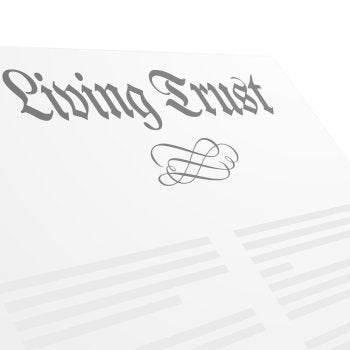-
Starting a Conversation About Estate Planning
 Did you know that over half of Americans with children do not leave wills? Estate planning near Tracy is essential if you want to ensure that your assets are handled well and that your family does not engage in unnecessary disputes. To obtain legal advice about your specific situation, always consult with a lawyer who handles estate planning. Keep reading to find out how to start a productive conversation with your loved ones about your estate’s administration.
Did you know that over half of Americans with children do not leave wills? Estate planning near Tracy is essential if you want to ensure that your assets are handled well and that your family does not engage in unnecessary disputes. To obtain legal advice about your specific situation, always consult with a lawyer who handles estate planning. Keep reading to find out how to start a productive conversation with your loved ones about your estate’s administration.Select Family Roles
When it comes to planning your last will and testament, estate attorneys regularly advise their clients to select the family members who are best fit for different roles before holding a family meeting. When people ask for family input, feelings can get hurt and emotions can run high. By picking the right candidate for your health care proxy, financial power of attorney, or guardian for your children on your own, you can then use your family meeting to simply explain each person’s role—without asking for feedback.
Set a Good Tone
Of course, your conversation about estate administration should be as pleasant as possible. Try to strike a gentle tone, but remember to stand firm in your convictions. You may want to consider asking your will lawyer to join the conversation, as well. Your attorney can provide an expert’s analysis of estate law while serving as a neutral facilitator.
Prepare Necessary Paperwork
Once you’ve decided whom you want to handle the key roles related to your estate, it is time to contact an estate planning attorney. A will lawyer will help you secure the documents you need to cement your wishes and ensure that they are carried out according to your exact wishes. Your attorney can also verify that you have forms you may not have considered, like an Advance Healthcare Directive. This document states your preferences for medical treatment and is essential to have as part of your living will.
-
Comparing Wills and Trusts
Although making plans for your estate may be uncomfortable, it is one of the most important things you can do for your family. Two options you have are wills and trusts. Wills are legal documents that detail your final wishes, from who you wish to receive the assets in your estate to who should gain guardianship of your pets. Trusts can be set up while you’re alive and are a pool of assets that can be used by your beneficiaries. When you are alive, you are the beneficiary of your trust, and after your death, it will pass on to the people you have designated. Let one of the attorneys in Tracy at Bakerink, McCusker & Belden help you understand whether a will or trust is appropriate for your needs and help you set one up that adequately protects your family. Start a conversation with your family about estate planning by sharing this information.

-
Exploring the Differences Between a Living Trust and a Will
 Many people are familiar with the last will and testament, which is a signed legal document that establishes how a person’s property is to be divided upon his or her death. Wills also serve to designate a guardian for minor children. Drafting wills near Tracy and Manteca may be done at any point in a person’s lifetime–not necessarily only when a person is of advanced age or has a serious illness. Wills can be amended at any time that the individual wishes. However, wills are not the only component of the estate planning process.
Many people are familiar with the last will and testament, which is a signed legal document that establishes how a person’s property is to be divided upon his or her death. Wills also serve to designate a guardian for minor children. Drafting wills near Tracy and Manteca may be done at any point in a person’s lifetime–not necessarily only when a person is of advanced age or has a serious illness. Wills can be amended at any time that the individual wishes. However, wills are not the only component of the estate planning process.Lawyers who specialize in estate planning can also help clients establish living trusts. As the term suggests, these structures govern property management during a person’s lifetime, as well as after the person’s death. Some people choose to establish a living trust because it can bypass probate of assets and prevent information about financial assets from becoming publicly accessible. A person can be named as the trustee of his or her own living trust. Upon becoming incapacitated or dying, a successor trustee takes over these responsibilities.
-
Who Has the Right to Pursue a Wrongful Death Case?
After losing a loved one in an accident, you may choose to consult an accident attorney about your legal rights and options. If your loved one’s death can be attributed to the neglectful or reckless actions of another party, you may be able to file a wrongful death lawsuit against that person. As your attorney can explain to you, a wrongful death lawsuit is a civil action, which is not the same as criminal charges such as manslaughter. An attorney in Tracy or Manteca can evaluate your case and your relationship to the decedent. The rules regarding which individuals may be eligible to pursue a wrongful death case vary from state to state.

Family Members and Partners
Your attorney may file a wrongful death lawsuit on your behalf if you are an immediate family member of the decedent. Under California law, this is defined as the decedent’s surviving spouse and surviving children. The decedent’s domestic partner may also file a wrongful death lawsuit. These individuals essentially have the first right to file a wrongful death claim. If there are no surviving individuals in the decedent’s line of descent, then other individuals may be eligible to bring a claim.
Extended Family Members
Assuming that the first category of individuals is no longer living, the state of California allows extended family members to file a claim. Specifically, these include any individuals who would be beneficiaries of the decedent’s property in accordance with the state of California’s laws of intestate succession. This category would typically include the surviving parents of the decedent or the decedent’s surviving siblings.
Financial Dependents
Even if you do not fit into either of the above categories, you can still consult an attorney if you lost a loved one because of the actions of another person. You may be eligible to bring a claim against the responsible party if you can prove that you were a financial dependent of the decedent. This may apply if you were the decedent’s putative spouse or child of a putative spouse. Other financial dependents may include the decedent’s stepchildren and parents.
RECENT POSTS
categories
- Uncategorized
- Personal Injury
- Estate Planning
- customer reviews
- Financial Planning
- Work Injury
- Tracy Lawyer
- Attorney
- Dog Bites
- Auto Accident
- Slip and Fall
- Car Accident
- Living Trusts
- Trust Administration
- Living Will
- Wrongful Death
- Probate
- advanced health care directive
- About Us
- Russian linguist
- Infographic
- Wills and Trusts
- Will
- Car Crash
- Executor
- Whiplash Injuries
- Estate Taxes
- Slip and Fall Injury
- Auto Accident Claims
- Intestate Succession
- Disinheritance
- Trust Administrators
- Cycle Accident
- Accident
